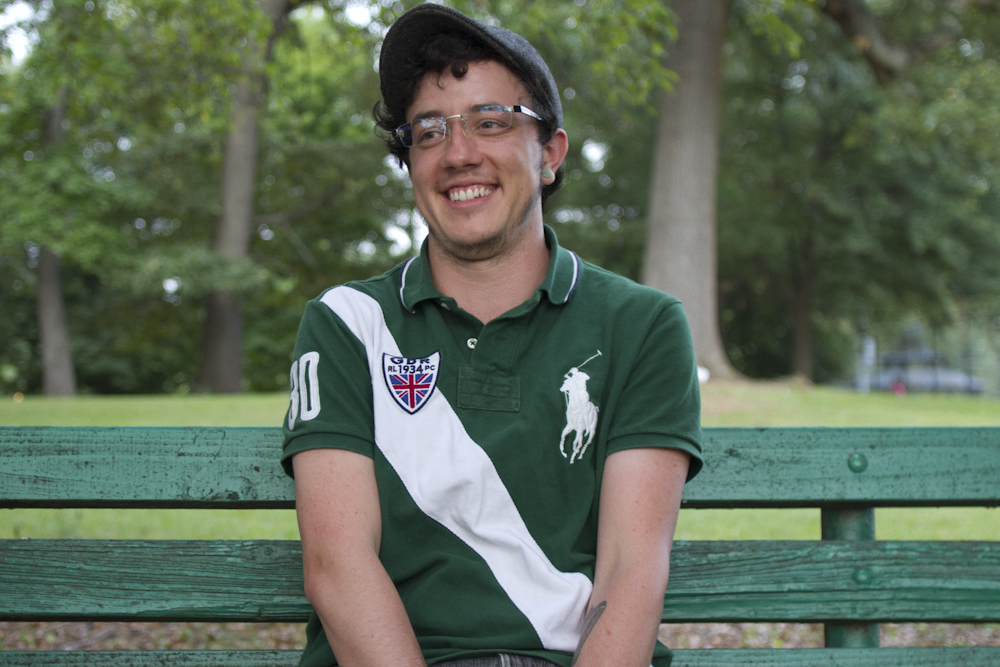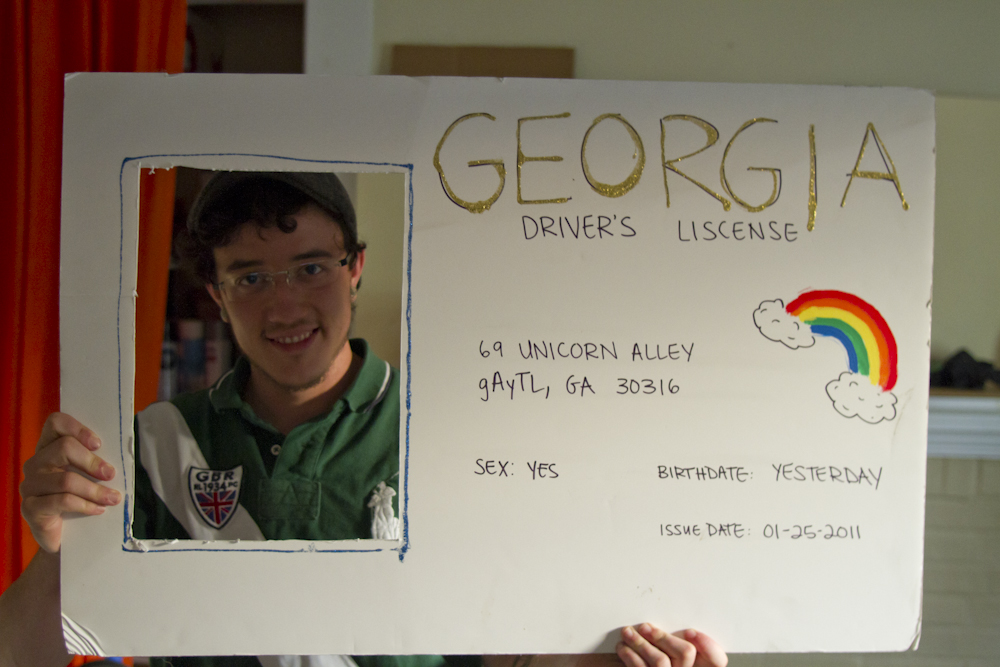
Just don't use pronouns in public. That's what C.G. usually tells his mother before they go out. Just call me by my nickname.
G. is not obsessed with grammar, but being born a female now living as a male, makes common pronouns like “he” and “she” a complicated issue. The transgender distinction is one that even the most shunned of the gay and lesbian community will often agree has the hardest plight of the oft-embattled LGBT community.
“Being transgender confuses people; it’s harder for people to grasp,” insists G., a 24-year-old from Atlanta, who prefers to be referred to by male pronouns. “People can more easily grasp the concept of gay or lesbian – being sexually attracted to someone of the same sex – but transgender is often an abstract concept to many people.”
Em Elliott, a field organizer for Georgia Equality and the Georgia Safe Schools Coalition -- Atlanta-based non-profit organizations that played an integral role in helping get critical school bullying legislation passed in the state Legislature last year -- says popular culture plays a major role.
“Transgender people have a lot more stigma working against them,” she says. “Over the years there’s been a lot more gay and lesbian characters on TV and in movies, but transgender people are rarely shown, and when they are they’re not usually shown in a positive light. People are afraid of it and they don’t want to know more about transgender people.”
Anneliese Singh, a University of Georgia (UGA) researcher who specializes in transgender issues, says gender identity and sexual orientation are often confused.
“Gender identity is how you identify your gender, versus gender expression which is how you express that gender,” she explains.
G.’s story is typical of others who identify as transgender, an estimated 700,000 people in the United States, according to a recent UCLA study. (C.G. requested that only his initials be used.)
G. first noticed an attraction to females at the age of 15, when a close friendship with a female classmate two years older evolved into a romantic attraction.
“I was kind of like, ‘this is pretty interesting and strange; maybe I’m gay,’” recalls G., then living as a female in rural Richmond Hill, Ga., a small town about a 30-minute drive from Savannah.
It didn’t take long for G.’s parents to catch on. When they confronted her about the relationship, he confirmed being romantically linked to the friend. The news didn’t go over well with them, both die-hard military brass living in a small town.
While deep-seeded emotions of anger, resentment and denial were simmering at home among her parents, the predicament at school reached all-out inferno status. Her secret got out and she was unwittingly shoved out of the proverbial closet for all to see. Many LGBT people describe “coming out” to family and friends as an arduous ordeal, but being the first openly lesbian student at her high school in the Deep South was especially agonizing, insists G.
“People would walk by my desk and purposely hit me in the head with books and none of the teachers did anything to stop it,” recalls G. “One time somebody carved the words dyke and faggot into my car door with keys. It was horrible. I was depressed and suicidal all throughout high school.”
G. contends that his experience was just one example of how transgender people are disproportionately victims of discrimination, violence and hate crimes. Young people are particularly vulnerable in schools nationwide, he says.
A 2009 national school climate survey of 7,261 LGBT middle and high school students youth conducted by the Gay, Lesbian and Straight Education Network (GLSEN), a national LGBT advocacy group, supports that view. It found that:
- 63 percent reported hearing negative remarks about gender expression (such as not acting “masculine enough” or “feminine enough”) frequently or often at school.
- 61 percent felt unsafe at school because of their sexual orientation; 40 percent because of how they expressed their gender.
- 85 percent reported being verbally harassed (e.g., called names or threatened) at school because of their sexual orientation; 64 percent felt it was due to their gender expression.\
- 40 percent said they were physically harassed at school in the past year because of their sexual orientation; compared to 27 percent because of their gender expression.
Georgia statistics are similar. Of the 175 LGBT student poll respondents, many reported having experienced physical harassment and physical assault:
- 9 out of 10 reported being physically harassed because of the way they expressed their gender; about 2 in 3 reported being physically assaulted (e.g., punched, kicked or injured with a weapon) because of their sexual orientation.
Singh, the UGA researcher, agrees with G.
“There are considerably less resources available for transgender people in schools and that can make it an especially difficult experience for them,” Singh says. “Fortunately, along with the many challenges they also have a lot of resilience; that resilience keeps them bouncing back. We need to do more in schools to support them.”
It got to a point, G. says, that for safety reasons he arrived at school early and left late in hopes of thwarting further confrontations and harassment.
“I didn’t feel safe,” remembers G. “There was no GSA (gay student alliance) at my school and only one teacher offered any kind of support.”
For these reasons, G. is an ardent supporter of Georgia’s new anti-bullying law passed by the state Legislature in 2010. Starting in August, schools must begin notifying parents when their child is bullied or bullies another. The current policies in local school districts don’t require notification in every case.
Elliot, the field organizer for the non-profits, says the measure is a huge success for Georgia students, particularly those who are LGBT.
“This goes a long way to promote a safe environment in schools,” she says. “This legislation was inspired by the suicide of DeKalb County [Georgia] student Jaheem Herrera, who was relentlessly teased and called gay at his school. That case put a lot of pressure on the state Legislature to address this issue. The bullying policies had not been updated since the 1980s. Jaheem’s ordeal gave us the push that we needed to get it passed.”
The new law:
- Defines bullying more broadly than before.
- Requires local school systems to adopt policies on dealing with bullying.
- Expands the policies to include elementary school students, particularly kindergarten.
- Requires parents to be notified any time their child is bullied or bullies someone else.
- Mandates students who bully in grades six through 12 be placed in an alternative school after the third offense.
G. says having such a law in place during his school days could have made a huge difference.

http://wp.me/pnQPn-1l…you can click on my name or here.
I have written a “TG state of the union” report that discusses our plight. I hope it helps give strength to others. Way to go Conner!